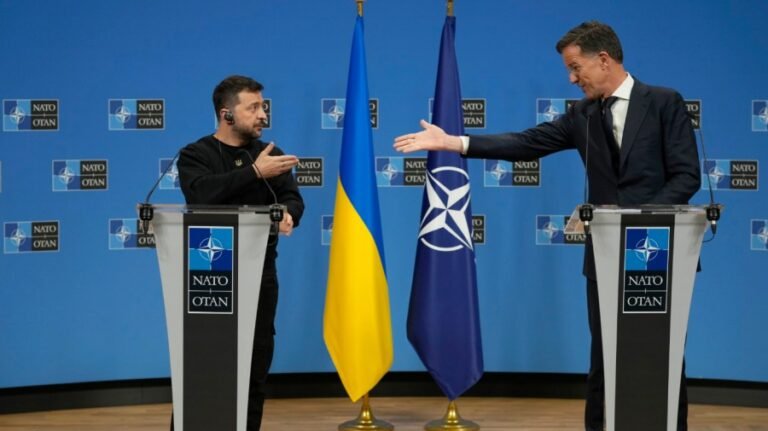
NATO Secretary-General Mark Rutte said Sunday that he doesn’t believe there is a risk that peace negotiations in Alaska with President Trump and Russian President Vladimir Putin will reward Russia for its invasion of Ukraine.
ABC News’s Jonathan Karl asked Rutte on “This Week” if he believed, like former national security adviser John Bolton does, that negotiations are sliding in Russia’s favor, which could potentially reward the country for its invasion.
“No, I don’t think the risk is there,” Rutte replied. “And all my respects for John, and please send him my best regards, but I would not agree on this point with him. We have seen President Trump putting incredible pressure on Russia.”
“So, this is all clear evidence that President Trump is absolutely adamant to bring this war to an end, but also to keep maximum pressure on Putin,” Rutte later added.
Rutte said the Friday meeting between to two leaders was important because it “is testing Putin, how serious he is in this whole process, which will then have to continue after Friday, with Ukraine involved, with others involved, to bring this war to an end.”
Trump and Putin are set to meet in Alaska on Friday to discuss peace negotiations. Ukrainian President Volodymyr Zelensky was not invited to the summit; however, the White House and the NATO Ambassador Matthew Whitaker said there is a possibility he will attend.
Bolton, who was the national security advisor during Trump’s first term, said Saturday on CNN’s “The Source” with host Kaitlan Collins, “The only better place for Putin than Alaska would be if the summit were being held in Moscow.”
“So, the initial setup, I think, is a great victory for Putin,” he continued.
On Aug. 6, Trump signed an executive order adding a 25 percent tariff on India’s purchases of Russian oil, bringing the tariffs up to a total of 50 percent. The tariffs will be in effect 21 days after Trump signed the executive order.
This was intended to let India negotiate with Russia; however, in the meantime, India’s leader has reaffirmed its bipartisan relations with the Kremlin.
“We also reviewed the progress in our bilateral agenda, and reaffirmed our commitment to further deepen the India-Russia Special and Privileged Strategic Partnership. I look forward to hosting President Putin in India later this year,” Narendra Modi said.
The NATO chief also mentioned Trump’s actions within the international organization as proof that the president is dedicated to this peace deal.
“He was the one delivering the big success at the NATO summit, the 5 percent spending commitments in June, one of the biggest foreign policy successes of the U.S. in the last couple of years,” he said.
Rutte also mentioned the deal struck in July between the Trump administration and NATO countries to send more weapons to Ukraine.
The meeting in Alaska will discuss territorial claims. Last week, Putin shared a ceasefire agreement with the Trump administration, which asked for control of Eastern Ukraine.
Zelensky adamantly opposed the deal by posting on X, “Any decisions that are against us, any decisions that are without Ukraine, are at the same time decisions against peace.”
Rutte said the negotiations would include talks about territory as well as “security guarantees” and “the absolute need to acknowledge that Ukraine decides of its own future, that Ukraine has to be a sovereign nation, deciding on its own geopolitical future, of course, having no limitations to its own military troop levels, and for NATO to have no limitations on our presence on the Eastern flank in countries like Latvia, Estonia and Finland.”
Whitaker reassured on Sunday that no matter what deal is struck between the parties, there will be verification that both countries are acting towards peace.


